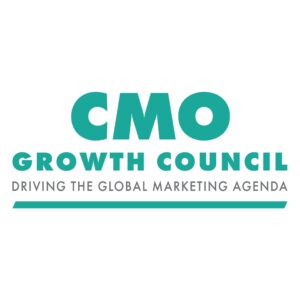
The Global CMO Growth Council, representing 1,200+ chief marketers from some of the world’s leading brands, is advocating to, once-and-for-all, establish a clear, universal path for marketers to help drive business growth and benefit all of humanity.
During its inaugural B4H Summit, the Council’s leadership shared the new ‘B4H’ (Brands for Humans) Growth Platform: a framework that rewrites the rules of marketing that is better suited for modern businesses and their consumers alike. The B4H platform provides a clear vision for organizations to distinguish themselves with their stakeholders – their customers, employees, and shareholders – as a force for good and a force for growth.
Marketing Technology News: MarTech Alliance Learning Membership
The Council used this special gathering to unveil several outputs from the ambitious initiatives started over a year ago, arranging the day’s agenda around sharing the insight of the CEOs, CMOs, and Academics who are leading the modern business revolution. With 100+ CMOs in attendance, the day included never-before-released findings from the Yale Center for Customer Insights at the School of Management’s recent study on stakeholder capitalism with implications for CMOs, as well as intimate roundtable discussions with Fortune Media CEO Alan Murray and Association of National Advertisers CEO Bob Liodice. The unprecedented gathering of industry leaders signals a paradigm shift in the marketing industry, where CMOs and business leaders are collectively stepping up to drive the industry’s future in a more active and collaborative way.
“This moment is widely viewed as being long-overdue for the industry,” said Nick Primola, EVP, Global CMO Growth Council. “For too long, marketing has been labeled as “business to consumer” (B2C) or “business to business” (B2B) — but business TO anything falls far too short of creating the potential value that is required of modern corporations. Redefining marketing’s mission as ‘B4H’ elevates marketing’s mission in a way that aligns with the company’s responsibility to create real value and address human needs in innovative ways for the people they serve.”
Adoption of the B4H Growth Platform is vital for CMOs to deliver on the promise of “stakeholder capitalism” as a force for good and a force for growth. The impact of a global pandemic and recession, combined with racial injustice around the world, exacerbated the need for chief marketers to guide the development of operational business systems to accelerate the economy and reinvigorate the worldwide community.
“The role of marketing is, and always has been to grow the business, full stop. What has changed especially over the past year is “how,” furthered Primola. “The marketing function has a unique ability, and therefore a responsibility, to elevate its role in a way that helps the entire enterprise extend beyond “ads” and demonstrate real actions that create value for all of its stakeholders. In doing so, marketing must also insist on being held accountable for clear, revenue-driving metrics.”
Marketing Technology News: https://martechseries.com/mts-insights/interviews/martech-interview-with-hunter-montgomery-chief-marketing-officer-at-churnzero/
HIGHLIGHTS FROM THE B4H SUMMIT:
- A partnership with Fortune Media and the Global CMO Growth Council puts a spotlight on the relationship between CEO and CMO as being more important than ever before. The partnership will focus on creating a series of in-depth conversations between CEOs and CMOs about how corporate purpose and data insights are transforming business, and to put in place a set of best practices for collaboration within the C-suite.
- Never-before released findings from the Yale School of Management’s research on stakeholder capitalism with implications for CMOs. Academia has also undertaken marketing’s revolutionized role, recognizing a new generation of consumers, employees, investors, and citizens with rising expectations of business. In a provocative session, industry icons Jon Iwata and Ravi Dahr of Yale School of Management challenged the Council to expand their roles and elevate their impact in this new business era. These early findings laid-out the skills, methods and tools that can help leaders maximize growth by creating value for all stakeholders.
- Cannes LIONS State of Creativity research. Findings from 1,500 of the most senior members of the global marketing community reveal how brands are using creativity in their growth strategies, covering key challenges, opportunities, creative tools, and tactics driving creative success in 2021.
- A new universal framework for measuring brand growth KPIs. What brand metrics correlate most strongly to growth? What brand drivers matter most to a CEO/CFO? Mathilde Delhoume, Global Brand Officer at LVMH, Norman de Greve, CMO at CVS Health, and George Hammer, Chief Content Officer at IBM, shared the list of brand growth KPIs developed by the Global CMO Growth Council community across multiple industries, company sizes, and regions.
Elevating the expectation of marketing’s role in business growth will benefit companies and consumers alike. Closing out the Summit, each respective constituency (CMOs, CEOs + Academia) was provided a list of actions that must be taken to ensure the industry can realize the full potential of marketing as a force for societal good and a force for economic growth:
- CEOs to demand more from marketing: CEOs need to elevate their expectations and demand more from their marketing functions. To not let it fall back on “pre-pandemic” norms. Nothing else is going back to the way it was before 2020 and neither should marketing. CEOs must be certain that their marketing functions are operating at full potential to help the entire company meet the heightened expectations of consumers and create value for its stakeholders.
- CMOs to adopt a “B4H” growth platform: CMOs are uniquely positioned to help the company keep humanity at the center of its growth strategies — leading with insights, experimenting, and being innovative and creative to help businesses not just survive, but thrive. They must now help to orchestrate all the company’s disparate units to create a unified force for societal good and a force for economic growth.
- Academia to build the talent pipeline the industry needs: University presidents must reframe their traditional perceptions of marketing’s role in business. They must work together with corporations to prepare students for rewarding careers that are more innovative and less linear. That fosters creative thinking and personal leadership that results in a positive impact on society along the way.











